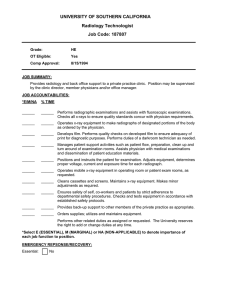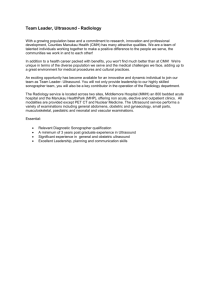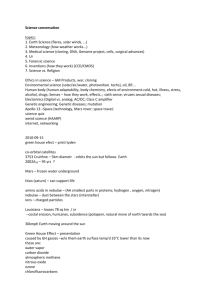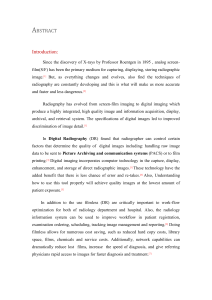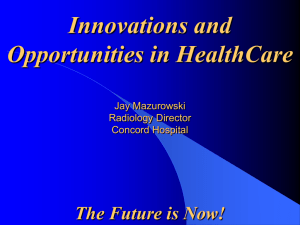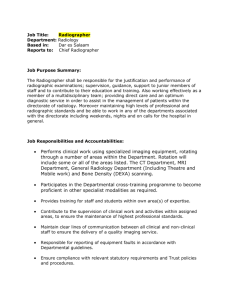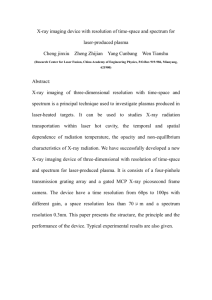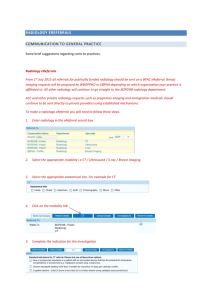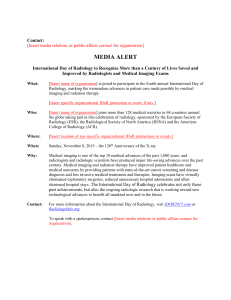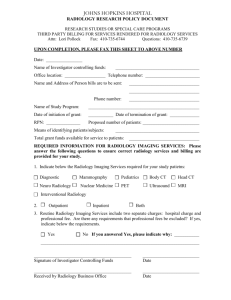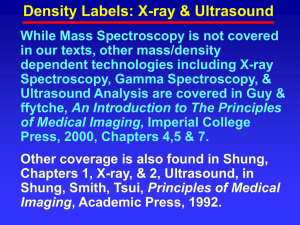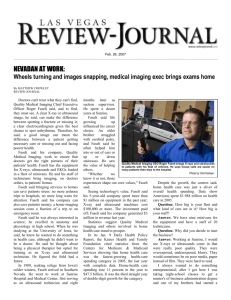MODUL C 2
advertisement
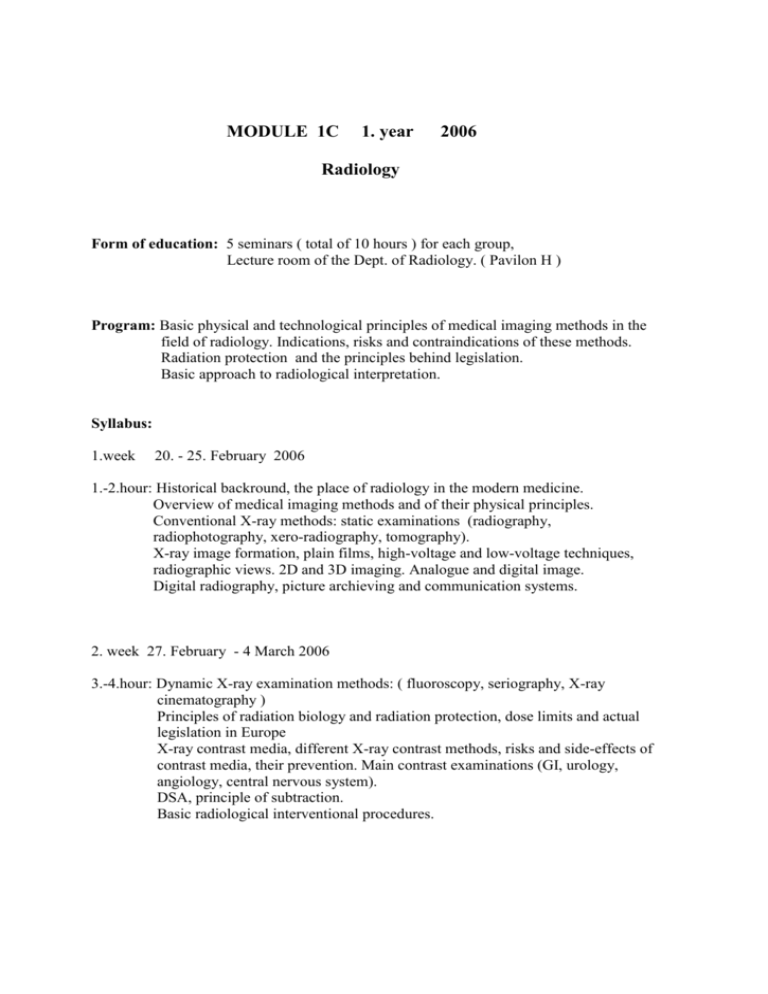
MODULE 1C 1. year 2006 Radiology Form of education: 5 seminars ( total of 10 hours ) for each group, Lecture room of the Dept. of Radiology. ( Pavilon H ) Program: Basic physical and technological principles of medical imaging methods in the field of radiology. Indications, risks and contraindications of these methods. Radiation protection and the principles behind legislation. Basic approach to radiological interpretation. Syllabus: 1.week 20. - 25. February 2006 1.-2.hour: Historical backround, the place of radiology in the modern medicine. Overview of medical imaging methods and of their physical principles. Conventional X-ray methods: static examinations (radiography, radiophotography, xero-radiography, tomography). X-ray image formation, plain films, high-voltage and low-voltage techniques, radiographic views. 2D and 3D imaging. Analogue and digital image. Digital radiography, picture archieving and communication systems. 2. week 27. February - 4 March 2006 3.-4.hour: Dynamic X-ray examination methods: ( fluoroscopy, seriography, X-ray cinematography ) Principles of radiation biology and radiation protection, dose limits and actual legislation in Europe X-ray contrast media, different X-ray contrast methods, risks and side-effects of contrast media, their prevention. Main contrast examinations (GI, urology, angiology, central nervous system). DSA, principle of subtraction. Basic radiological interventional procedures. 3. week 6. – 11. March 2006 5.-6.hour: Principles of ultrasonography, basic components of an ultrasound system, transducers, documentation. Principles of A,B,M, real time and duplex mode. Doppler ultrasound. Main indications of US examinations. Principles of medical thermography 4. week 13. - 18. March 2006 7.-8.hour: Computed tomography ( CT ), planar and spiral mode.Scout image, axial scans. Coronal and sagittal reformatting, density measurements. Contrast CT examinations CT-angiography, 3D reconstructions. Main indications of CT examinations 5. week 20. - 25. March 2006 9.-10.hour: Magnetic resonance imaging (MRI), principles, equipment. Image acquisition, SE and GE pulse sequences, T1 and T2 weighting.Paramagnetic contrast media, risks, indications and contraindications of MR examination. MR angiography. MR spectroscopy. MR safety. February 10, 2006 doc.MUDr.Jan Šprindrich, CSc Chair, Dept. of Radiology
